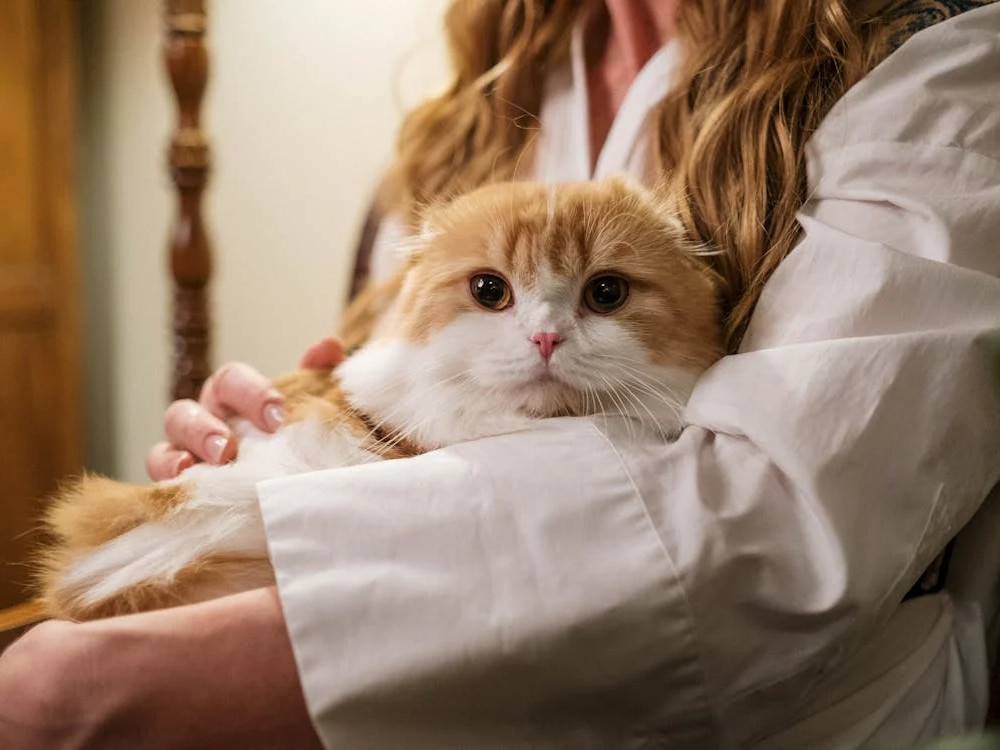Therapy Cats: Purring Away Stress and Spreading Comfort

When people think of therapy animals, dogs often come to mind. However, cats are making a name for themselves as exceptional therapy animals. With their soothing purrs, gentle nature, and innate ability to bond with humans, therapy cats offer comfort and companionship to individuals in need of emotional support.
What Are Therapy Cats?
Therapy cats are specially trained and temperamentally suited cats that provide emotional support, comfort, and companionship. Unlike service animals, therapy cats do not perform specific tasks for individuals with disabilities. Instead, they are brought into various environments by their handlers to engage with people who may be experiencing stress, loneliness, or trauma.
These cats are chosen for their calm demeanor, sociability, and ability to adapt to different settings. They undergo assessments to ensure they can handle the demands of therapy work.
The Benefits of Therapy Cats
Therapy cats bring a host of emotional and mental health benefits to individuals of all ages. Here are some key ways they help:
1. Reducing Stress and Anxiety
The rhythmic sound of a cat’s purr is known to have a calming effect on humans. Studies suggest that spending time with cats can lower stress hormones and increase feelings of relaxation.
2. Providing Emotional Comfort
Cats are naturally affectionate and intuitive, often sensing when someone needs comfort. Their quiet presence can soothe feelings of grief, depression, or loneliness.
3. Improving Mental Health
Interacting with therapy cats can boost serotonin and dopamine levels in the brain, which are chemicals associated with happiness and well-being.
4. Encouraging Mindfulness
Petting a cat or watching their playful antics can help individuals stay present and focused on the moment, reducing feelings of overwhelm.
5. Easing Physical Symptoms
The calming presence of a therapy cat can help lower blood pressure and heart rate, contributing to overall physical health.
Where Therapy Cats Are Found
Therapy cats provide their unique brand of comfort in a variety of settings, including:
- Hospitals and Hospice Centers: Therapy cats bring peace and companionship to patients and their families.
- Nursing Homes: Cats help elderly residents feel connected and reduce feelings of isolation.
- Schools: Therapy cats support students dealing with stress or emotional challenges.
- Counseling Sessions: They assist therapists in creating a safe and comforting environment for clients.
Qualities of a Therapy Cat
Not all cats are suited for therapy work. The ideal therapy cat is:
- Calm: Comfortable in new environments and around strangers.
- Sociable: Enjoys interacting with people and doesn’t shy away from attention.
- Adaptable: Handles changes in surroundings and noise levels with ease.
- Gentle: Responds kindly to petting and handling, even from children or individuals with limited motor skills.
How to Train a Therapy Cat
If you believe your cat has the right temperament, you can explore therapy certification programs. Here’s how to get started:
- Assess Temperament: Ensure your cat is sociable, patient, and unafraid of new environments or people.
- Socialize Your Cat: Gradually expose them to different environments and people to build their confidence.
- Work with a Professional: Join a therapy cat training program through an accredited organization, where your cat’s behavior and temperament will be evaluated.
- Certification: Once trained, your cat can be certified as a therapy animal, allowing you to visit facilities and provide emotional support to those in need.
Why Cats Make Great Therapy Animals
Cats are often associated with independence, but their affectionate and calming nature makes them ideal companions for therapy work. Their smaller size and quiet demeanor allow them to work in spaces where larger animals might not be practical.
For individuals who may feel intimidated by dogs or who simply prefer feline companionship, therapy cats offer an alternative that is just as effective and comforting.
Final Thoughts
Therapy cats bring joy, healing, and a sense of calm to those in need. Their gentle purring and quiet companionship remind us of the profound impact animals can have on our mental and emotional well-being. Whether visiting hospitals, schools, or homes, therapy cats are proving that they, too, deserve a place in the world of animal-assisted therapy.
If you’re a cat lover, consider exploring opportunities to train your feline friend as a therapy cat. Together, you can make a meaningful difference in the lives of others, one purr at a time.




